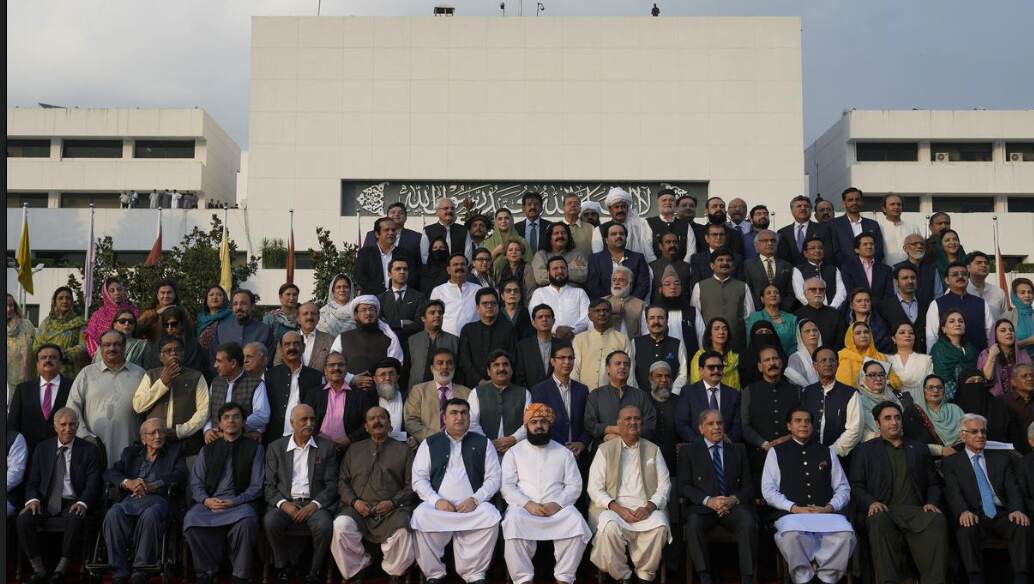National Assembly Dissolved: Pakistan's Election Countdown Begins Amidst Conviction Drama and Political Chaos
Pakistan's president has dissolved the National Assembly, paving the way for a general election. However, complications arise as the opposition leader is convicted and the timing remains uncertain.
Pakistan's president, Arif Alvi, has dissolved the National Assembly, marking the first step towards a general election expected to take place by mid-November. The decision was made on the advice of Prime Minister Shehbaz Sharif, as the assembly's five-year term is coming to an end. Usually, a general election would have to be held within 90 days of dissolving the assembly, but this year there may be a delay until the spring if the election commission opts for redistricting based on the results of a recent census. The political landscape is further complicated by the legal and political drama surrounding opposition leader Imran Khan.
Khan was convicted of concealing assets and sentenced to three years in prison. He has appealed the conviction, which has effectively removed him from the election campaign at a time when his party seemed to be performing well in the polls. The Islamabad High Court is currently hearing his appeal and has yet to make a decision on overturning the conviction. Meanwhile, Shehbaz Sharif addressed his last cabinet meeting, highlighting the challenges his government has faced, including an economic crisis and devastating floods in 2022.
Pakistan was able to secure a $3 billion bailout package from the International Monetary Fund, potentially preventing the country from defaulting on its debt repayments. Once the parliament is dissolved and Shehbaz Sharif steps down, a caretaker government will be installed to run day-to-day affairs until the next election. Sharif's ruling Pakistan Muslim League party is expected to face tough competition from Imran Khan's party, although Khan himself will be unable to participate unless his conviction is overturned. Pakistan's laws prohibit anyone with a criminal conviction from leading a party, running in elections, or holding public office.
The timing of the election remains uncertain, but it is likely to be delayed due to overlapping security, economic, and political crises. The election commission may need time to redraw constituency maps based on the results of a recent census. The Senate has passed a resolution urging the election commission to hold the elections within the stipulated time given in the Constitution. All state institutions have been called upon to assist the election commission in holding the polls.




